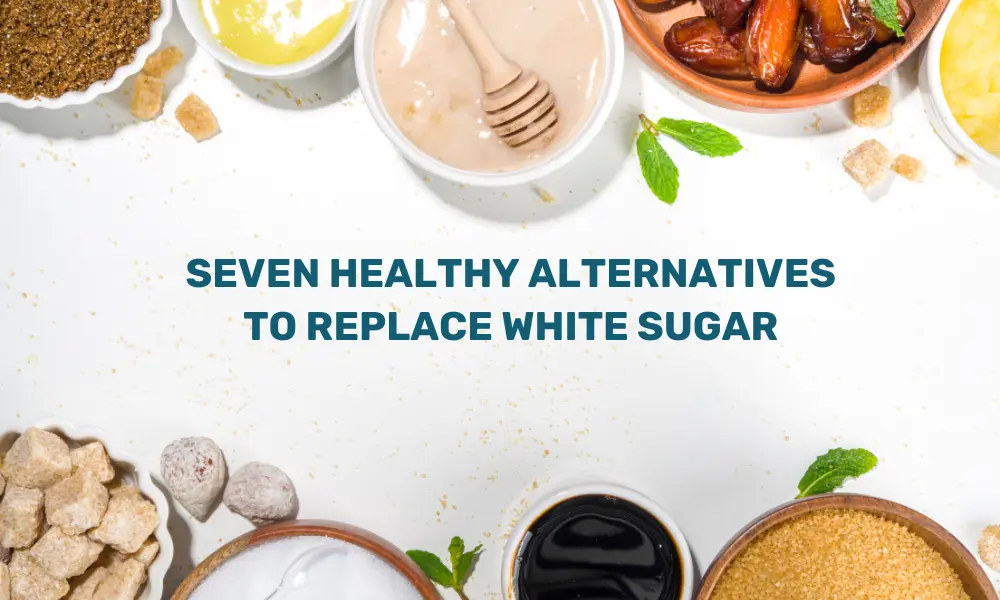With the ongoing festive season, we often end up consuming high amounts of sweets. However, this excessive sugar consumption can land us in trouble and increase our. White sugar, usually found in abundance in processed foods, sweets, and beverages, has been linked to multiple health issues, including obesity, diabetes, and heart disease.
Replacing white sugar with a healthier alternative can help us maintain sufficient blood sugar levels. A plethora of natural sweeteners are available, which do not adversely affect our health like refined sugar does.
Here are seven wholesome substitutes that one must consider including in one’s diet:
-
Maple Syrup: It is extracted from the sap of maple trees. It is renowned for its distinct flavor profile and nutrient content. It contains essential minerals like manganese and zinc and antioxidants that combat inflammation. When choosing maple syrup, opt for the pure, Grade A variety to avoid additives or artificial flavors.
-
Coconut Sugar: Made from the sap of coconut palm trees, coconut sugar offers a lower glycemic index compared to white sugar, meaning it causes a slower rise in blood sugar levels. Additionally, it contains small amounts of nutrients like iron, zinc, and calcium. Its caramel-like flavor makes it an excellent substitute for baking recipes and beverages.
-
Honey: A long-standing favorite in natural sweeteners, honey is packed with antioxidants and boasts antimicrobial properties. Its rich flavor can enhance a variety of dishes, from desserts to marinades. However, it’s essential to opt for raw, unprocessed honey to reap its full nutritional benefits, as processed varieties may lack the enzymes and antioxidants found in raw honey.
-
Stevia: Derived from the leaves of the Stevia rebaudiana plant, stevia is prized for its intense sweetness without calories or impact on blood sugar levels. It is available in various forms, including powdered extracts and liquid concentrates. Stevia is particularly suitable for individuals with diabetes or those looking to manage their weight.
-
Date Paste: Made by blending soaked dates with water until smooth, date paste offers natural sweetness, fibre, and essential minerals like potassium and magnesium. It can be used as a one-to-one replacement for white sugar in recipes, adding moisture and depth of flavor. Date paste works well in baked goods, smoothies, and dressings.
-
Monk Fruit Sweetener: Extracted from the monk fruit, a small green gourd native to Southeast Asia, monk fruit sweetener provides sweetness without the calories or carbohydrates found in sugar. It contains antioxidants called mogrosides, which impart sweetness to the fruit. Monk fruit sweetener is available in granulated form and can be used in various culinary applications.
-
Molasses: Molasses is a thick, dark syrup prized for its robust flavor and nutritional content. It contains significant amounts of iron, calcium, magnesium, and potassium, making it a healthier alternative to refined sugar. While molasses has a distinct taste that may not suit every recipe, it can add depth and complexity to baked goods, marinades, and sauces.
The Bottomline:
Incorporating these healthy alternatives to white sugar into your diet can help reduce your intake of refined sugars while still satisfying your sweet cravings. Whether you prefer the floral notes of honey, the earthy sweetness of coconut sugar, or the intense sweetness of stevia, there is a natural sweetener to suit every taste and dietary preference. Click here for customized dietary tips.





